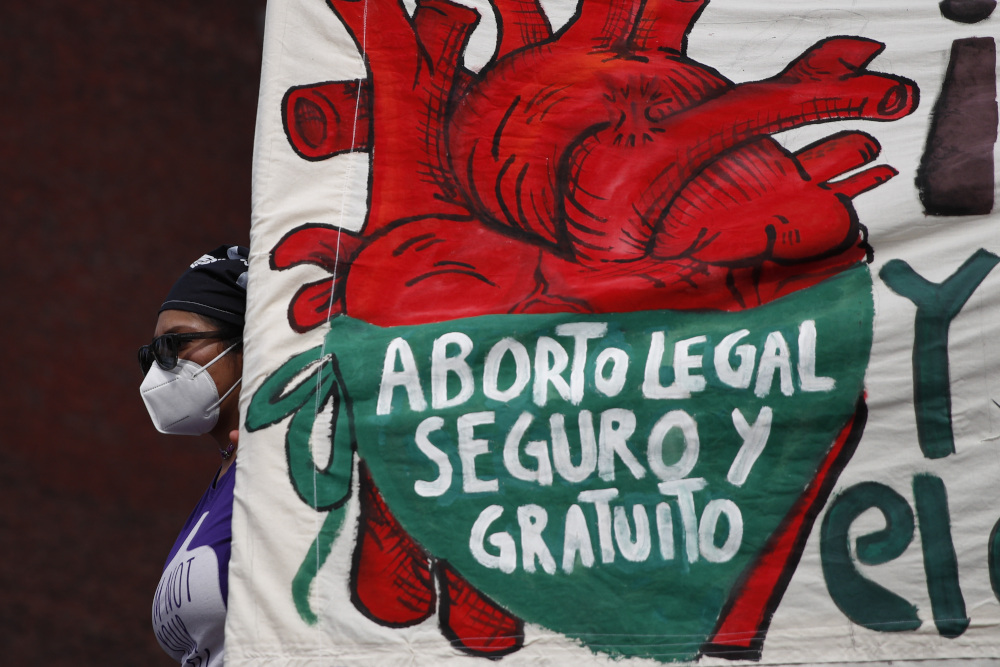
In this Sept. 28, 2020 file photo, a woman in Mexico City holds a banner reading, in Spanish, "Legal, safe, and free abortion, legalize and decriminalize abortion now, for the independence and autonomy of our bodies." (AP Photo/Rebecca Blackwell, File)
Mexico’s Supreme Court ruled Tuesday that it is unconstitutional to punish abortion, unanimously annulling several provisions of a law from Coahuila — a state on the Texas border — that had made abortion a criminal act.
The decision will immediately affect only the northern border state, but it establishes a historic precedent and "obligatory criteria for all of the country’s judges," compelling them to act the same way in similar cases, said court President Arturo Zaldívar. "From now on, you will not be able to, without violating the court's criteria and the constitution, charge any woman who aborts under the circumstances this court has ruled as valid."
The decision comes one week after a Texas law took effect prohibiting abortions once medical professionals can detect cardiac activity in the fetus. It allows any private citizen to sue Texas abortion providers who violate the law, as well as anyone who "aids or abets" a woman getting the procedure.
Only four Mexican states — Mexico City, Oaxaca, Veracruz and Hidalgo — now allow abortion in most circumstances. The other 28 states penalize abortion with some exceptions.
Mexico is a heavily Roman Catholic country. The church was a powerful institution through colonial times and after Mexico’s independence, but a reform movement in the mid-19th century sharply limited the church’s role in daily life. Anticlerical efforts at times led to bloodshed, especially during the Cristero Rebellion from 1926 to 1929.
In a previous decision, the Supreme Court ruled in favor of women who had been imprisoned or had their rights violated for abortions. But Rebecca Ramos, director of the nongovernmental reproductive rights group GIRE, said the latest casse was the first time the justices debated the fundamental question of whether abortion shoud be considered a crime or not.
The decision could potentially open another option for Texas women seeking legal abortions. For years, some women in south Texas have crossed the border to go to Mexican pharmacies to buy misoprostol, a pill that makes up half of the two-drug combination prescribed for medical abortions.
Advertisement







